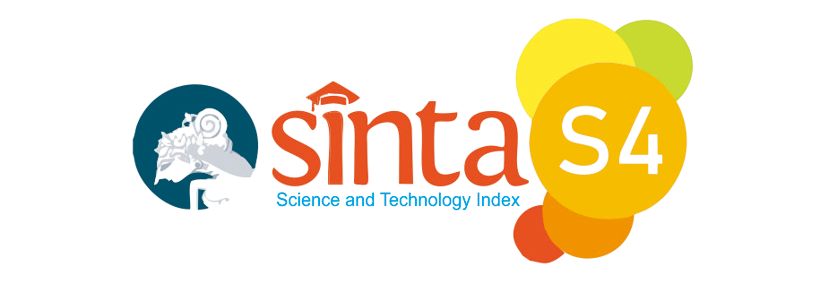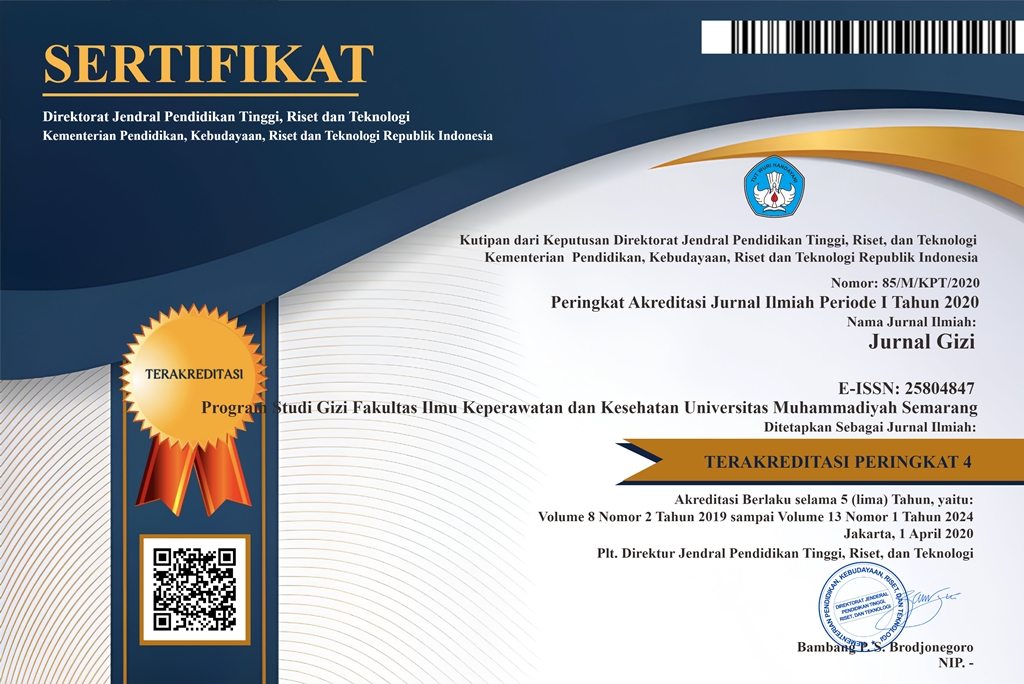Studi Kualitatif Ketersediaan dan Tingkat Konsumsi Garam Beriodium di Kabupaten Jepara
(1)
(2)
(3)
(*) Corresponding Author
Abstract
Universal salt iodization (USI) was the main program to overcome iodine deficiency disorders (IDD) in Indonesia. The uneven availability of iodized salt according to Indonesia
National Standard (SNI) became a problem to reach USI in some part of Indonesia, including in Jepara. Jepara was one of the city in Central java province which produced iodized salt. Unfortunately, most of those salt was sold outside Jepara area while iodized salt needed by Jepara community was supplied from area outside Jepara. The aim of this research was to
analyze the availability and consumption rate of iodized salt in Jepara regency.
This research used qualitative method. The main informants consist of five member from IDD prevention team and eleven salt producers. The triangulation informants consist of thirty
pregnant women from Pakis Aji. Data collected through observation, in-depth interview, focus group discussion and documents review. Data was analyzed using content analysis method.
The Results of this study : 76 iodized salt brands were circulated in jepara, 75% of them contain iodine <30 ppm. Those circulated unstandarized salt was caused by the lack of law enforcement by the Jepara Government. Most of the respondents thought that goiter was the most prevalent from IDD. Iodized salt available in every stores in Jepara, but the quality and taste of those salt became obstacle to consumed iodized salt according to SNI daily.
The conclusion of this study : Most of the respondents has already consumed iodized salt but Most of iodized salt circulated in Jepara contain iodine < 30 ppm.
Keywords: availability, salt consumption, iodized salt, Jepara
National Standard (SNI) became a problem to reach USI in some part of Indonesia, including in Jepara. Jepara was one of the city in Central java province which produced iodized salt. Unfortunately, most of those salt was sold outside Jepara area while iodized salt needed by Jepara community was supplied from area outside Jepara. The aim of this research was to
analyze the availability and consumption rate of iodized salt in Jepara regency.
This research used qualitative method. The main informants consist of five member from IDD prevention team and eleven salt producers. The triangulation informants consist of thirty
pregnant women from Pakis Aji. Data collected through observation, in-depth interview, focus group discussion and documents review. Data was analyzed using content analysis method.
The Results of this study : 76 iodized salt brands were circulated in jepara, 75% of them contain iodine <30 ppm. Those circulated unstandarized salt was caused by the lack of law enforcement by the Jepara Government. Most of the respondents thought that goiter was the most prevalent from IDD. Iodized salt available in every stores in Jepara, but the quality and taste of those salt became obstacle to consumed iodized salt according to SNI daily.
The conclusion of this study : Most of the respondents has already consumed iodized salt but Most of iodized salt circulated in Jepara contain iodine < 30 ppm.
Keywords: availability, salt consumption, iodized salt, Jepara
Full Text:
PDFArticle Metrics
Abstract view : 547 timesPDF - 166 times
DOI: https://doi.org/10.26714/jg.5.2.2016.%25p
Refbacks
- There are currently no refbacks.
Diterbitkan oleh: Program Studi Gizi (D3 dan S1)
Fakultas Ilmu Keperawatan dan Kesehatan
Universitas Muhammadiyah Semarang
Sekretariat: Jl. Kedungmundu Raya No. 18 Semarang
Contact Person : Hapsari Sulistya Kusuma, S.Gz, M.Si (+62 85 6 41 536 553)

This work is licensed under a Creative Commons Attribution 4.0 International License.









.png)
.png)